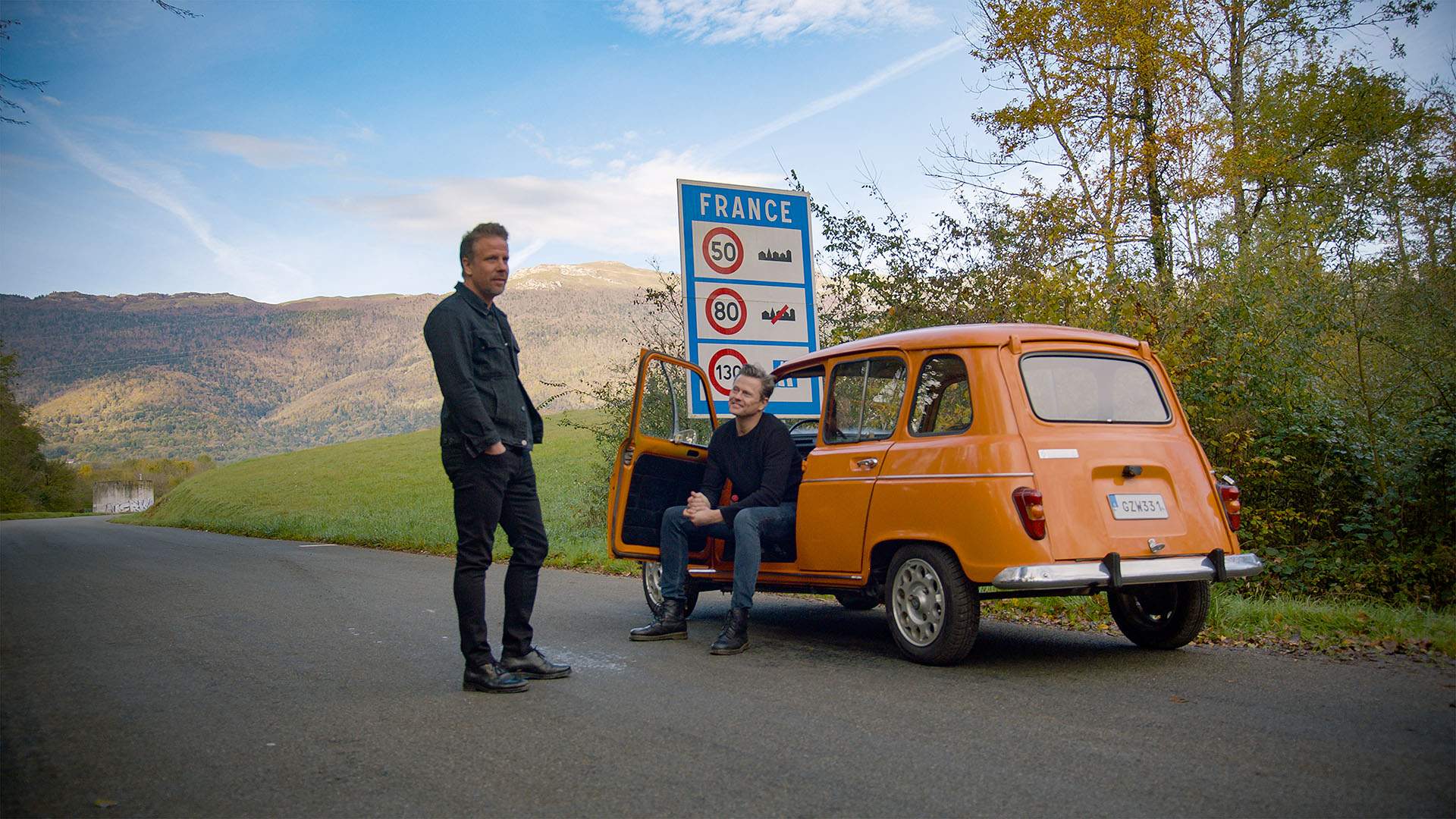How Sweden's Highest-Grossing Documentary Ever Makes the Personal Universal: Filip Hammar and Fredrik Wikingsson Chat 'The Last Journey'
If this affecting film about a TV presenter recreating his childhood holidays with his 80-year-old dad inspires you to follow in its footsteps, you won’t be the first.
Most families have road-trip stories and vacation tales embedded not only in their memories, but in their lore. Cherished holiday moments, whether joyous, chaotic or everything in-between, help cement the picture of who a brood is beyond the bonds of blood. So too does recalling those getaways in frequently wheeled-out anecdotes. This is all true for the Hammar family, which spent every summer during now-journalist, TV presenter and writer Filip's childhood heading from Sweden to France. With patriarch Lars behind the wheel, they'd venture for a stint of fun and sun — plus Lars whipping up ratatouille in the kitchen — at Beaulieu-sur-Mar in the French Riviera.
Plenty of families talk about recapturing that magic years later. Some make the same pilgrimage again. For Filip, taking Lars back to the spot between Nice and Monaco, driving there in the same type of orange Renault 4, staying in the apartment they always did, and re-orchestrating some of treasured incidents and instances, wasn't just about nostalgia, however. That's an undeniable aspect of the trip captured in documentary The Last Journey, but so is rekindling the now-octogenarian Lars' lust for life — which was flagging after retiring from his beloved job as a teacher after 40 years and biding most of his time in an armchair at home, with his energy, physical and emotional alike, waning. Co-directed with Fredrik Wikingsson, who Filip has collaborated with professionally for a quarter of a century, the film that chronicles the Hammars' new south-of-France jaunt is now Sweden's highest-grossing doco in history.
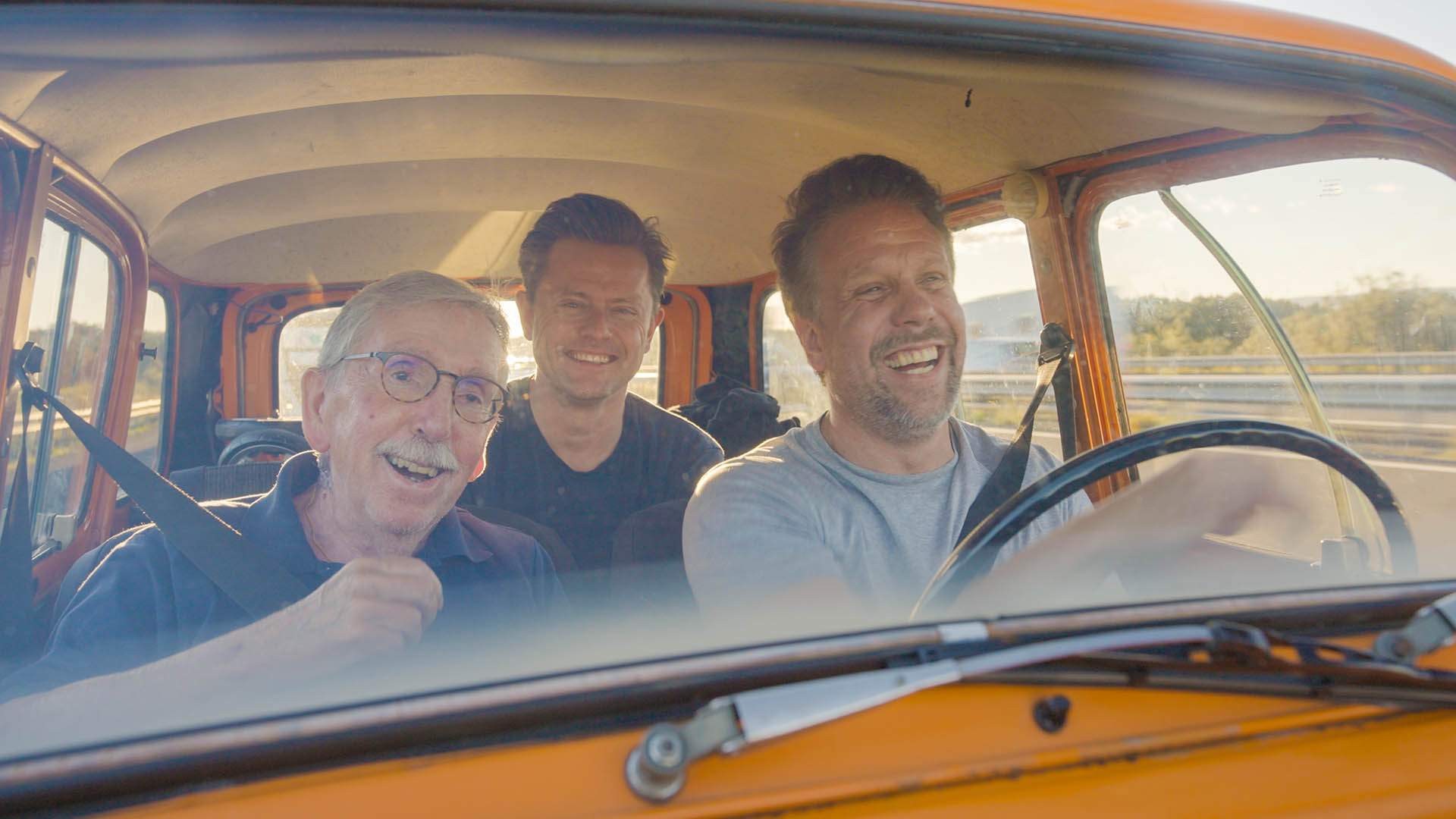
"We didn't expect this," Filip tells Concrete Playground about the reaction to the movie, which premiered in March 2024 in Swedish cinemas, was selected as the Scandinavian country's submission for the 2025 Oscars' Best International Feature category, and opens in Australia on Thursday, February 27, 2025 and in New Zealand on Thursday, March 6, 2025. Included in that sentiment: the response to the film as it has played well beyond Filip, Lars and Fredrik's homeland. "This was just a small, small project that we thought would be very domestic in a way," Filip continues. "Yeah, this is incredible for us," adds Fredrik.
With Fredrik also travelling to Beaulieu-sur-Mar with Filip and his father, this is a deeply personal picture. A son trying to help his dad reclaim his zest for living was always going to be — even if the travelling party hadn't had to navigate setbacks such as Lars' hotel-room fall, which results in a broken bone, a hospital stay and almost calling the whole thing off. But as specific to the Hammars as the whole endeavour is, as filled with recreated moments for Lars and Filip, and as layered with minutiae from their family's experiences, The Last Journey also achieves the holy grail of personal filmmaking: ensuring that such an individual quest is always movingly universal.
Again, road trips and fondly remembered holidays, tales about them, nostalgia and wanting to recapture family glory days are familiar to almost everyone; however, The Last Journey resonates well beyond the obvious, and long past the broad strokes. While they mightn't have when they were starting work on the movie, Filip and Fredrik — as they're known in Sweden, including via TV shows such as Sunday Party with Filip and Fredrik and Breaking News with Filip and Fredrik — understand this as filmmakers. Their documentary charts their French trip, plus Filip's journey to accept his dad's ageing and his grappling with mortality, through Filip's eyes, but its guiding forces now know that their viewers will see themselves in every Hammar family-centric detail.
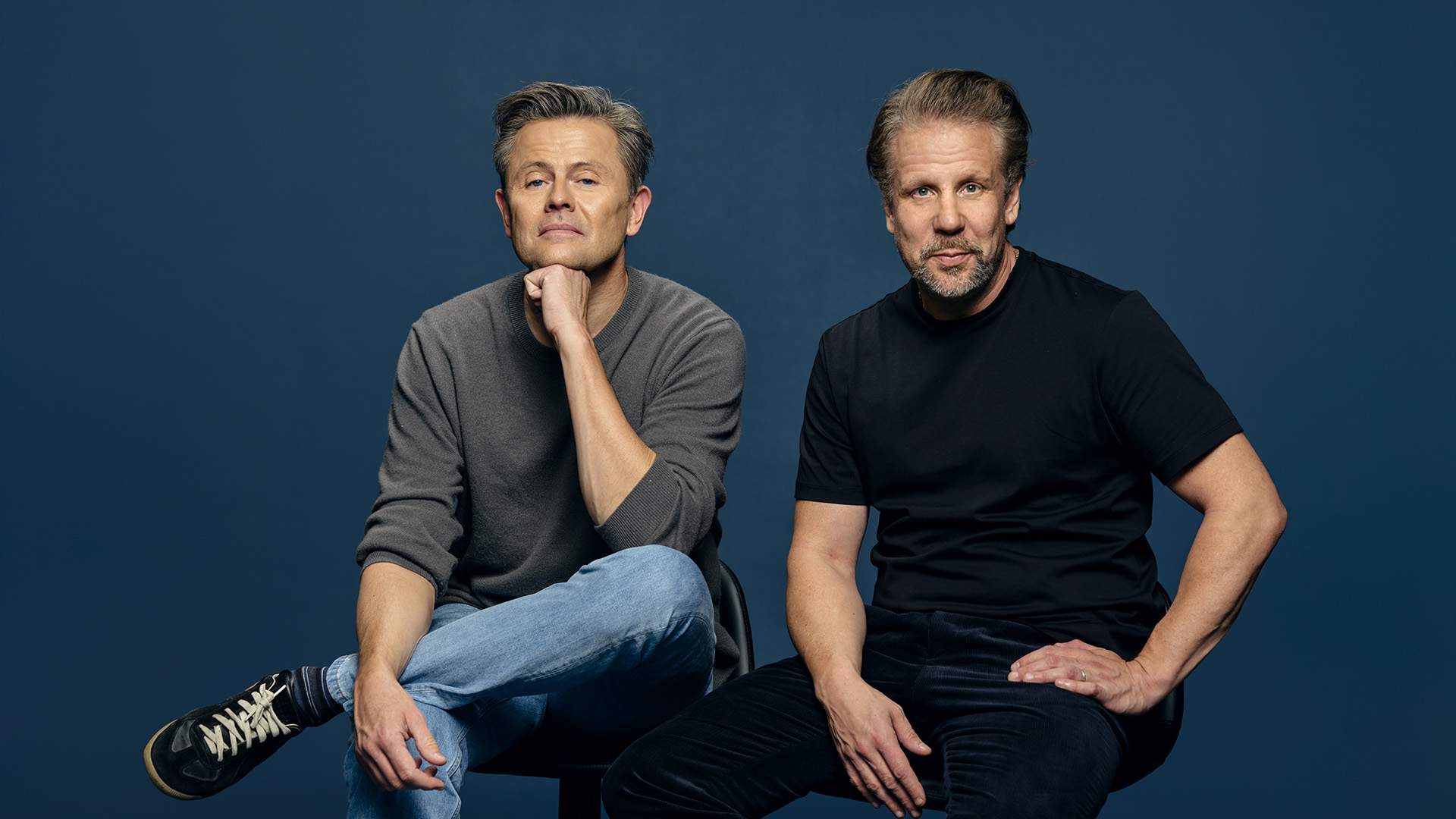
Margareta Bloom Sandebäck
There's a moment in the film in France, in the apartment that he visited yearly when he was a boy, where Filip comments that being there now feels like being in a museum — and that the memories of his dad from past holidays are everywhere you look. There's so much in that statement about the way that we adore and look back on memories and experiences with our loved ones, as there is in the film. Indeed, amid The Last Journey's efforts to recreate key memories for Lars, and its commitment to not shying away from tough moments, Filip's words and the sensation they describe — a feeling that viewers will be able to recognise instantly in their own lives — perfectly sums up the entire documentary.
That's an immense achievement for a movie that its directors were "very nervous about this being a very personal, small story that maybe nobody would give a shit" about, as Fredrik advises — even if they did come to realise that for audiences, "when you watch the film, you probably sit and think about the stuff you did with your parents when you grew up and the places you stayed at," Filip notes. Digging into the reaction to the doco, exploring why it's so relatable, unpacking that museum-like sensation, stepping through Lars' seemingly reluctance at various stages, examining why it was so crucial to include difficult moments, uncovering what Filip learned along the way: that's all a part of our chat with Filip and Fredrik as well.

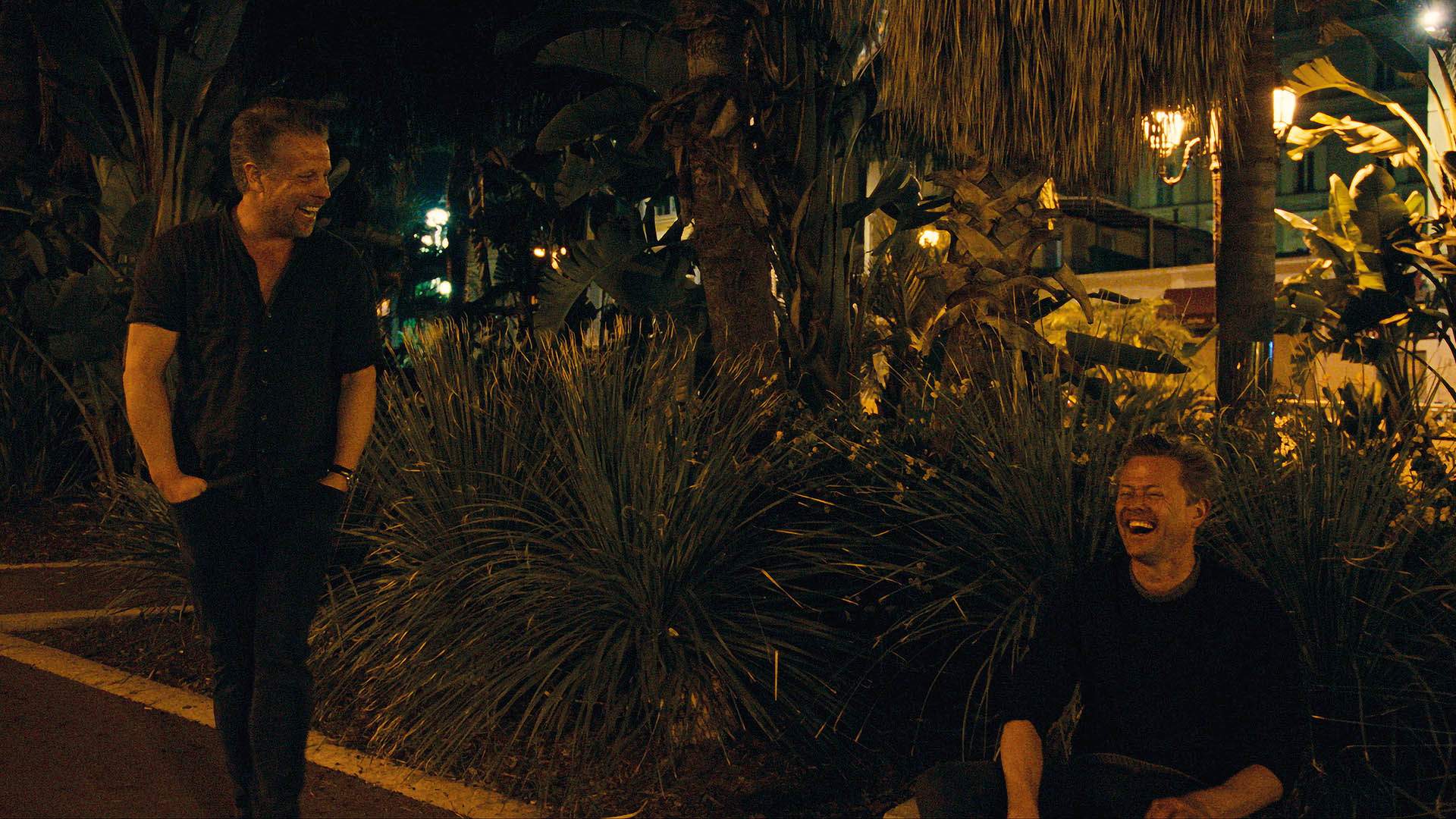
On Filip and Fredrik's Journey with the Film So Far, Including Notching Up the Highest-Grossing Swedish Documentary in History
Fredrik: "First and foremost, we were very nervous about this being a very personal, small story that maybe nobody would give a shit, because it was just like maybe people will think 'good for you, good for your dad, you made a trip, why should we care?'. And especially abroad, that's even crazier.
But the reactions from so many people, we got emails and text messages and stuff of people having seen the film and made their own versions of this journey. Like going to Italy with their 97-year-old grandfather, having one last beer at his favourite restaurant, or a smaller, more reasonable version — 'I just went to a museum with my mother' — and that whole almost-movement has been incredibly rewarding."
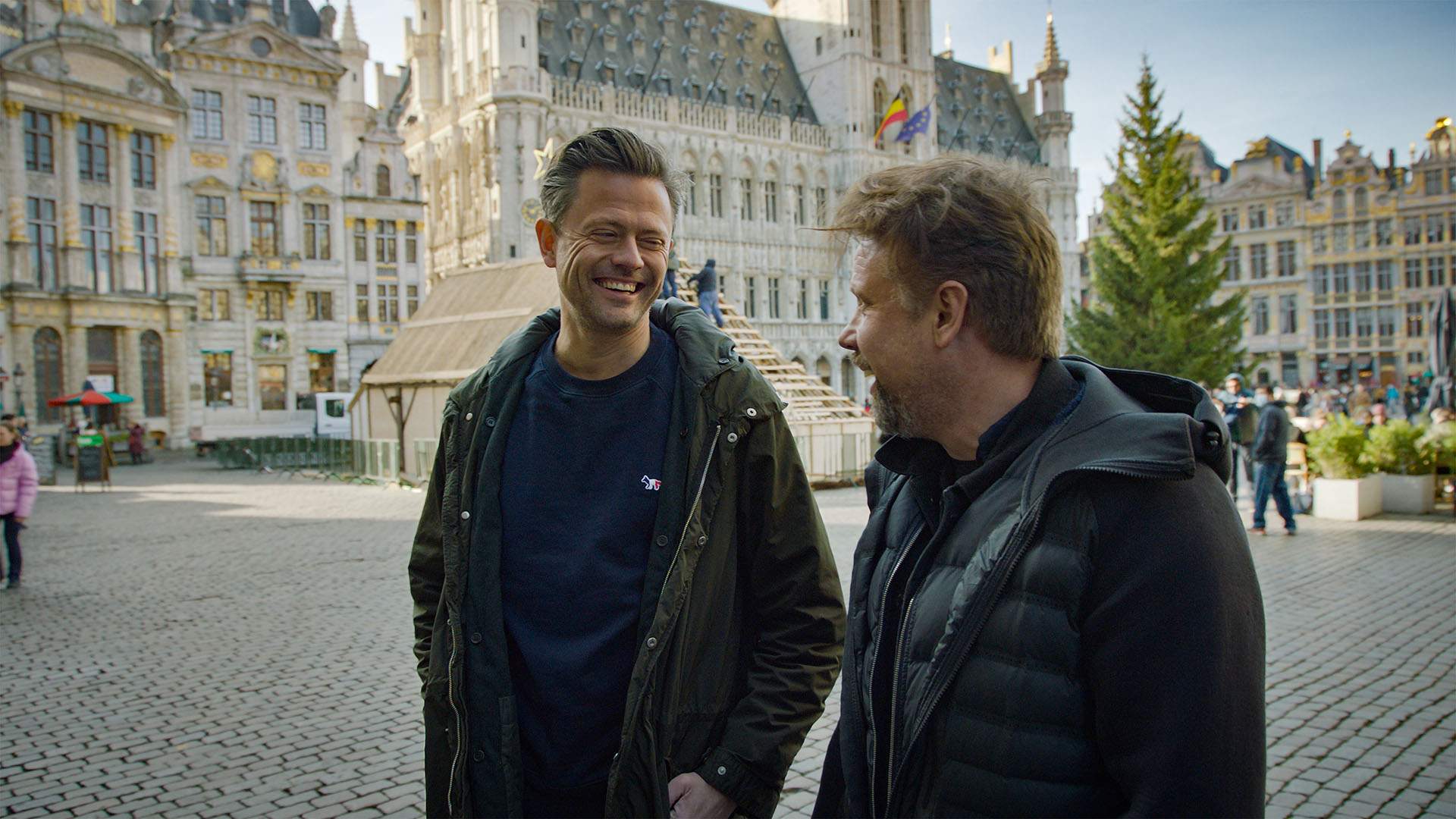
Filip: "I think that when you start out, when we had this idea — this started out as just me and my dad going on a trip without cameras, when me and Fredrik started talking, 'maybe we should document this somehow'. And we decided to do that. I'm not sure it's a good idea if you start thinking about 'will this resonate?'.
Of course you ask yourself those questions, like 'what's the story here?', but I don't think we understood how well it would resonate with people. Because this was my sort of issue — I felt like 'this is me, this is my dad, I want to reverse time, I want him to be the guy he used to be'. I think we underestimated how common that is in a way, how people could truly relate to this.
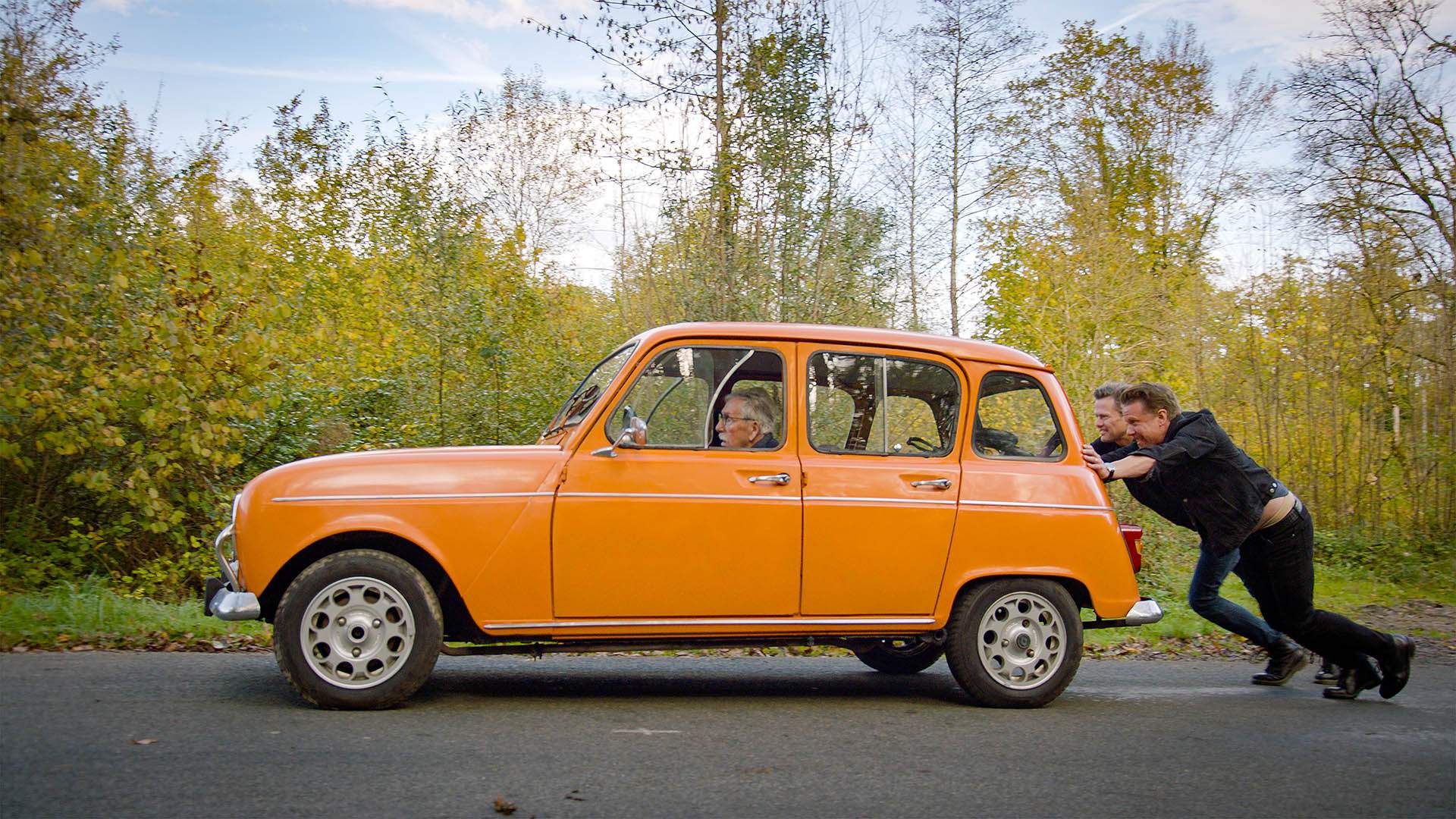
And first off, we discovered that 'hey, they can relate to this in Sweden' — and then we started slowly to screen it outside of Sweden, and then you realise that 'hey, this is a very universal thing'.
I mean, it's not that we're stupid. We knew that some people would relate. But I think it's really common now where you don't want your parents to get old, because it also makes you aware of your own mortality. And you also love your parents. So it's a very universal story, I think."

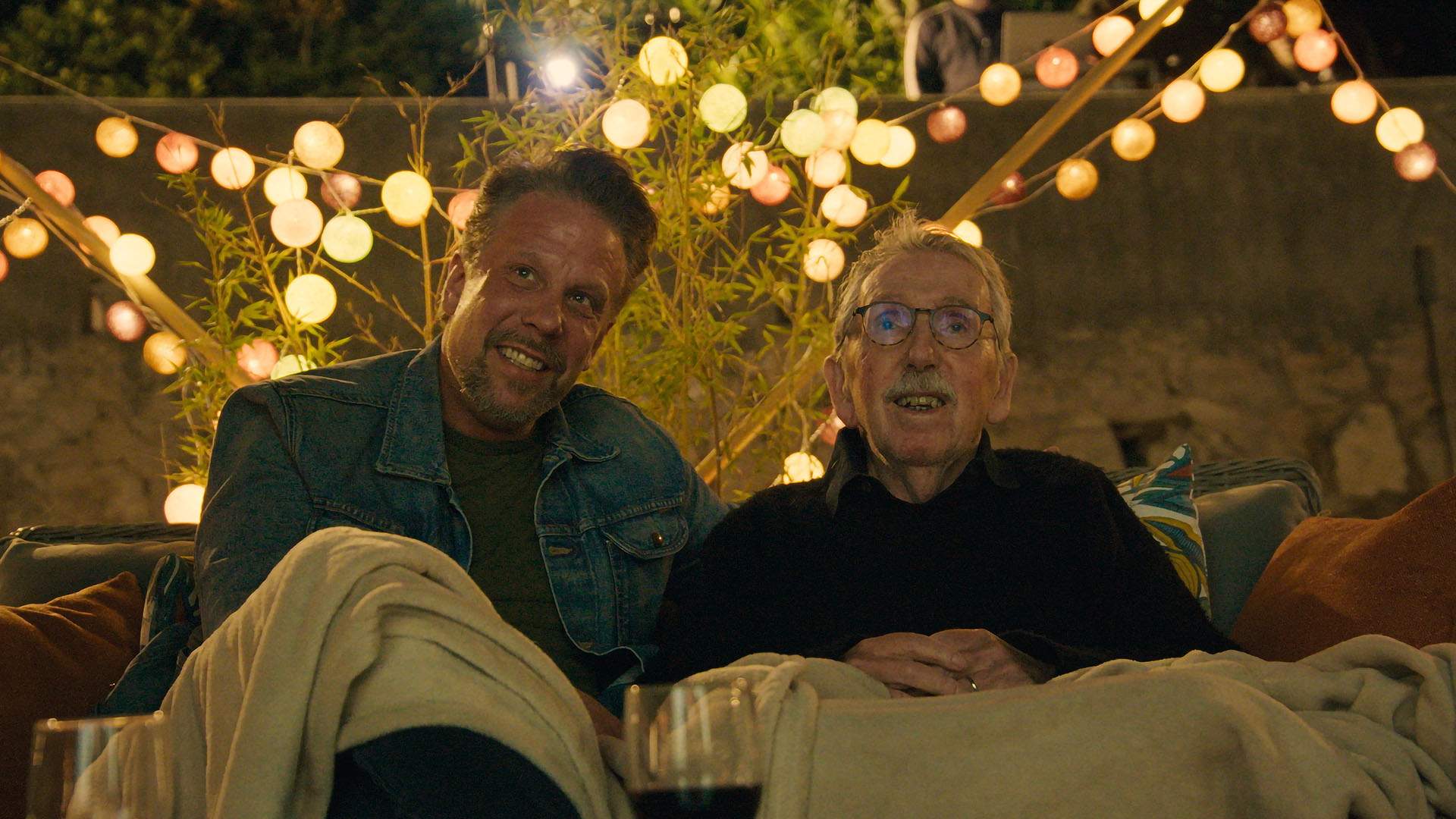
On the Movie's Museum Comment, How It Sums Up the Film and How We All See Our Memories in Spaces That Are Important to Us
Filip: "Thank you, first of all — that was just something I improvised. It just came."
Fredrik: "Yeah, yeah."
Filip: "I think people could relate to that as well. I remember, just a while ago, I went down to an apartment, my grandad's apartment — that's not in France, that's in Sweden — and I opened the door and immediately the smell was the same, and I immediately see my granddad was sitting there in his oversized bathrobe in the mornings, whatever. So there are several museums, because you associate places with certain things and memories.
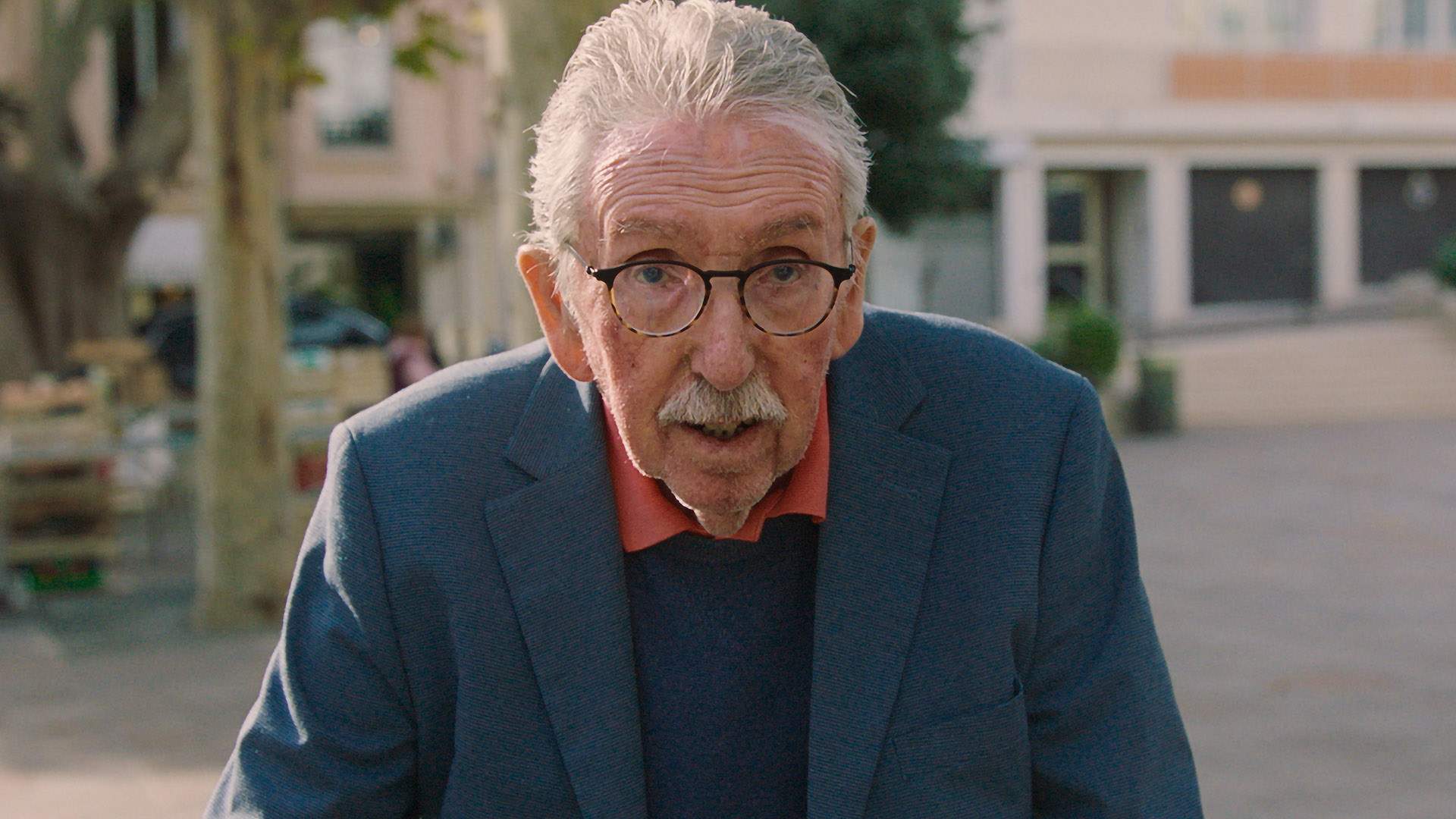
And I think that for everyone, like Fredrik talks about — I mean, in the beginning of the film, I talked about that last bend. We drive down to France and my dad always said 'kids, this is the last band. Then we arrive in our paradise'. But Fredrik had his own paradise. You probably had your own paradise. And those are museums, I guess, for all of us.
So that's also one of the reason I think you can relate, because when you watch the film, you probably sit and think about the stuff you did with your parents when you grew up and the places you stayed at."

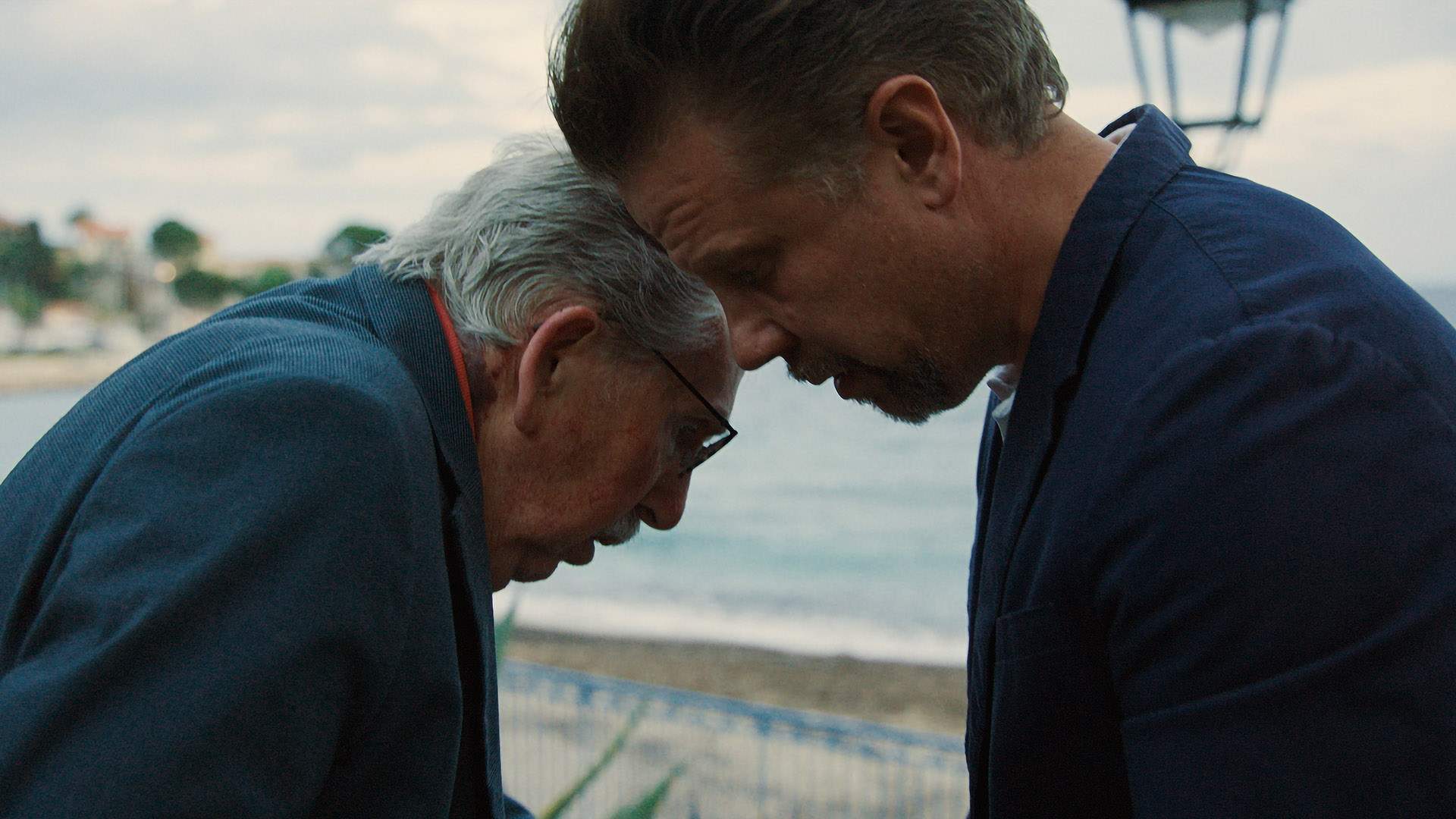
On the Quest to Help Lars Recapture His Lust for Life — Even with His Seeming Reluctance About the Journey at Times
Fredrik: "I've known Filip since the mid-90s and I've known Lars for as long. And he knows me well, and we love each other.
We had a very, very small crew — and I think there is a part of him being a teacher for 40 years, a very beloved teacher. And he was he was beloved because he was also a performer. He was one of those like Robin Williams in Dead Poets Society-type teachers. So I think in a way, I think the camera for him was like a return to performing again."
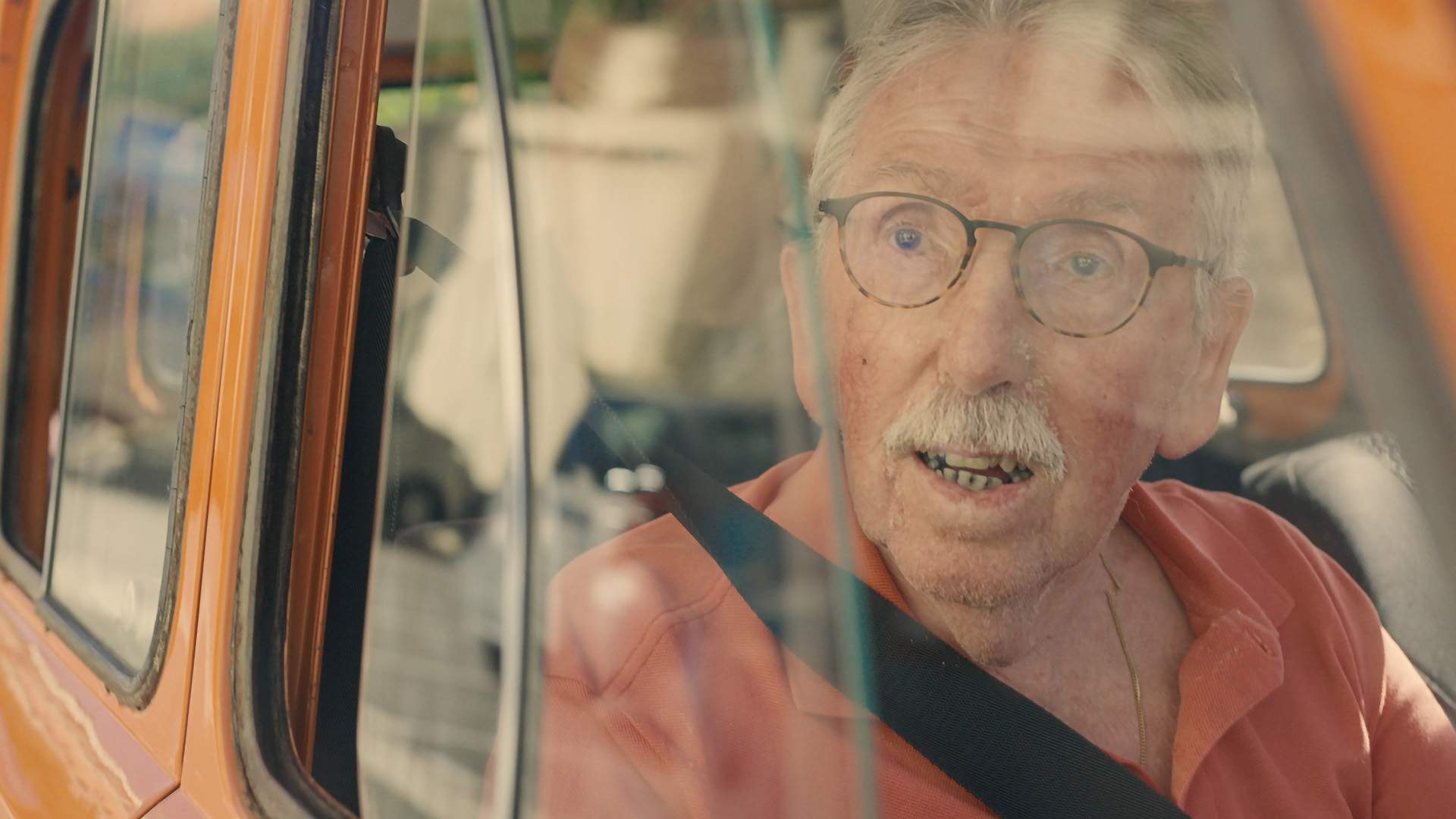
Filip: "That's true. You never said that before."
Fredrik: "So even though it could be strange to be on-camera for a person who's not used to it, he was such a natural, if you want to call it that. Also, I think the camera made Lars listen better, because he has all kinds of diagnoses, so he is not the greatest of listeners.
But everything, because of the camera, because we filmed everything, the tempo was really slow, and I think he just loved being seen and heard because he hadn't been that for a while sitting at home."
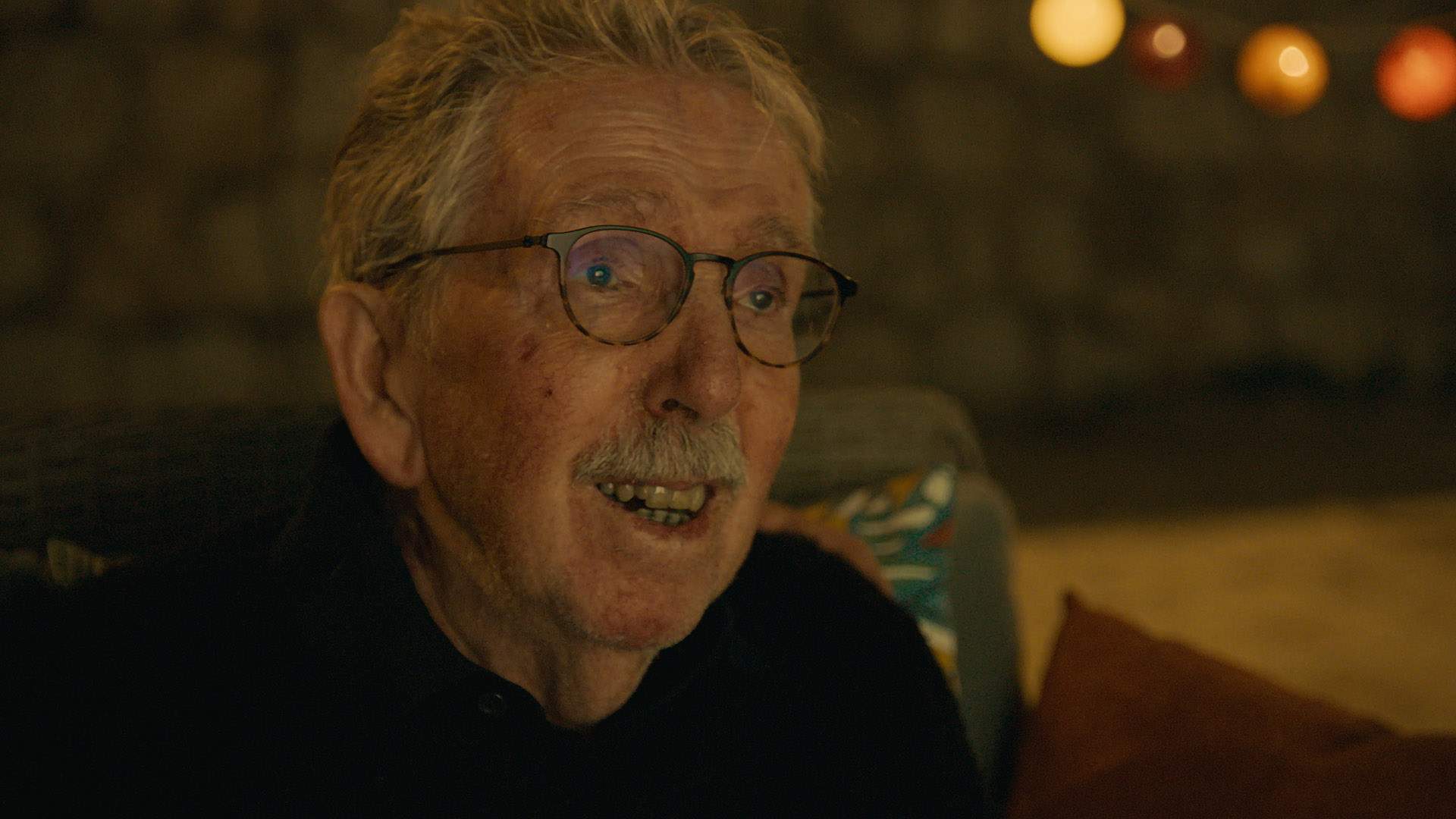
Filip: "Some people perceive it as him being reluctant, and that's true at times, but also everything, I try to with my mum, I want her to greenlight everything first. She really approved of this idea. She felt he has to do this. She's there with him every day, and if you're depressed, like my dad is, you rather say 'no' than 'yes' — because you are worried, that's just part of it.
We wouldn't, of course, have pushed him if he said 'no, no, no, no, no'. We wouldn't have done it. Or if a doctor would say 'this is not possible'. But I know my dad good enough, my mum knows her husband good enough, to understand that, well, you need to convince him — and sometimes you just need to tell him 'Lars, this is what you've got to do', because we knew that he would enjoy this.
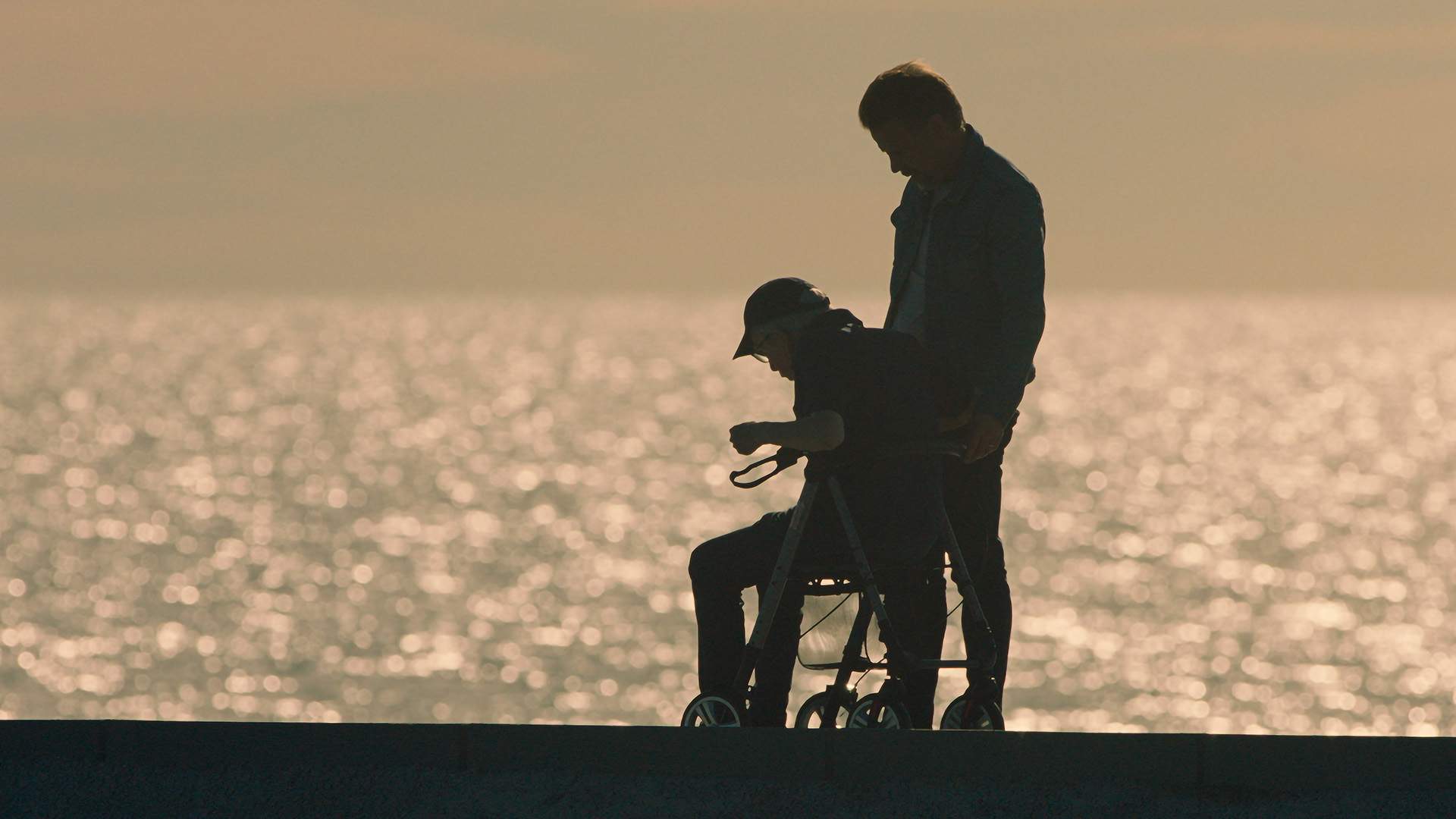
There were times when he's worried, of course, because he's lost a lot of self-confidence maybe. But he also enjoyed it. Even Fredrik knows this, because he'd seen my dad throughout the years.
You can see when he suddenly tells the story about the parrot, when he starts remembering stuff that happened during the heydays of his life on the French Riviera, he smiles. He loves this. He forgets that he's depressed."

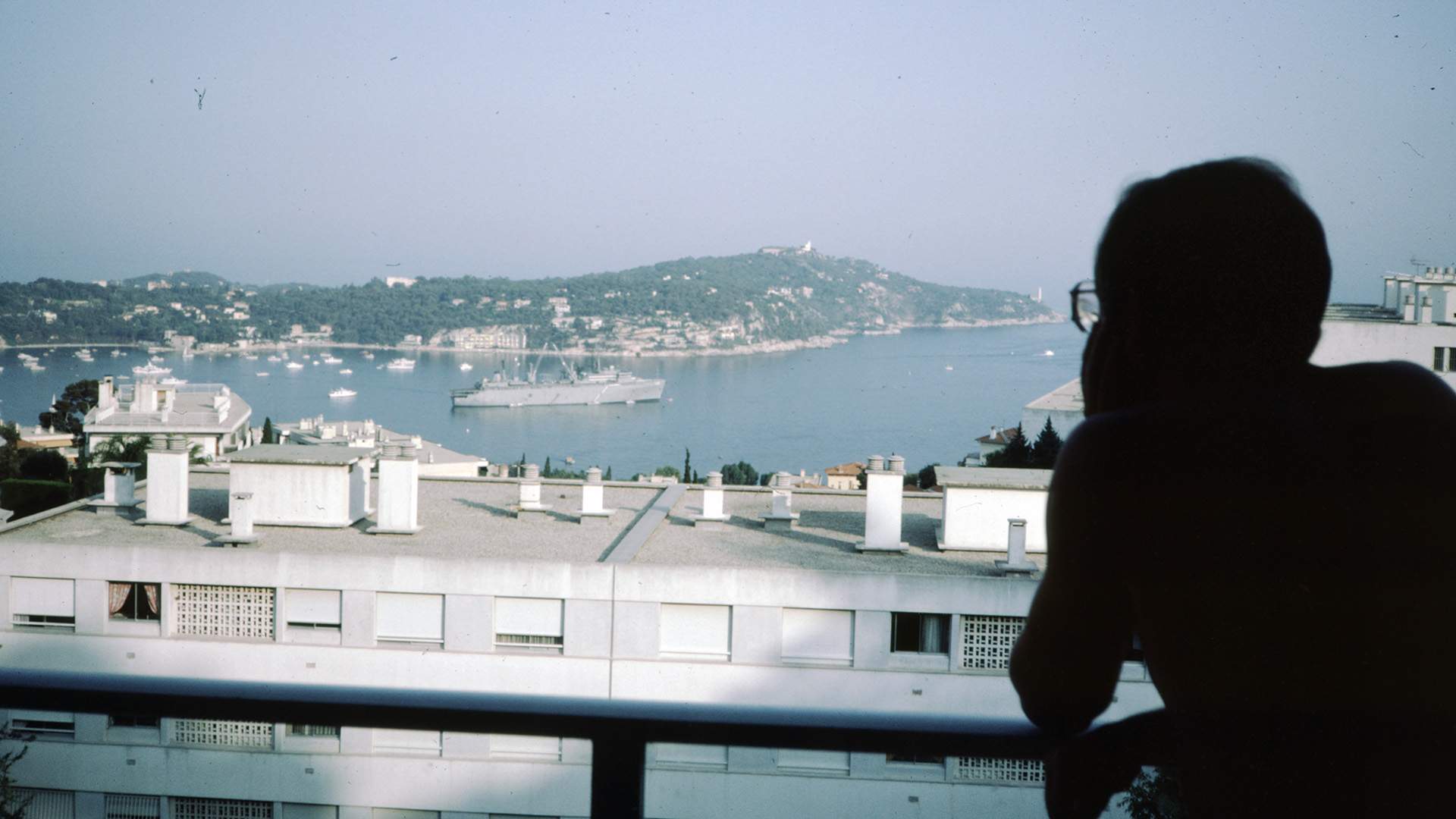
On the Importance of Recreating Pivotal Moments From Lars and Filip's Family Holidays — and Managing to Pull Them Off
Fredrik: "I think this trip could have been only sunsets and beautiful dinners, and having a good lunch with some great French food, but for us that would not do justice to who Filip's dad is. He is original, and the way he looks at France is not like the typical Eat, Pray, Love bullshit, which is all like the good food and stuff."
Filip: "Fredrik sometimes calls this film 'an Eat, Pray, Love for smart people'."
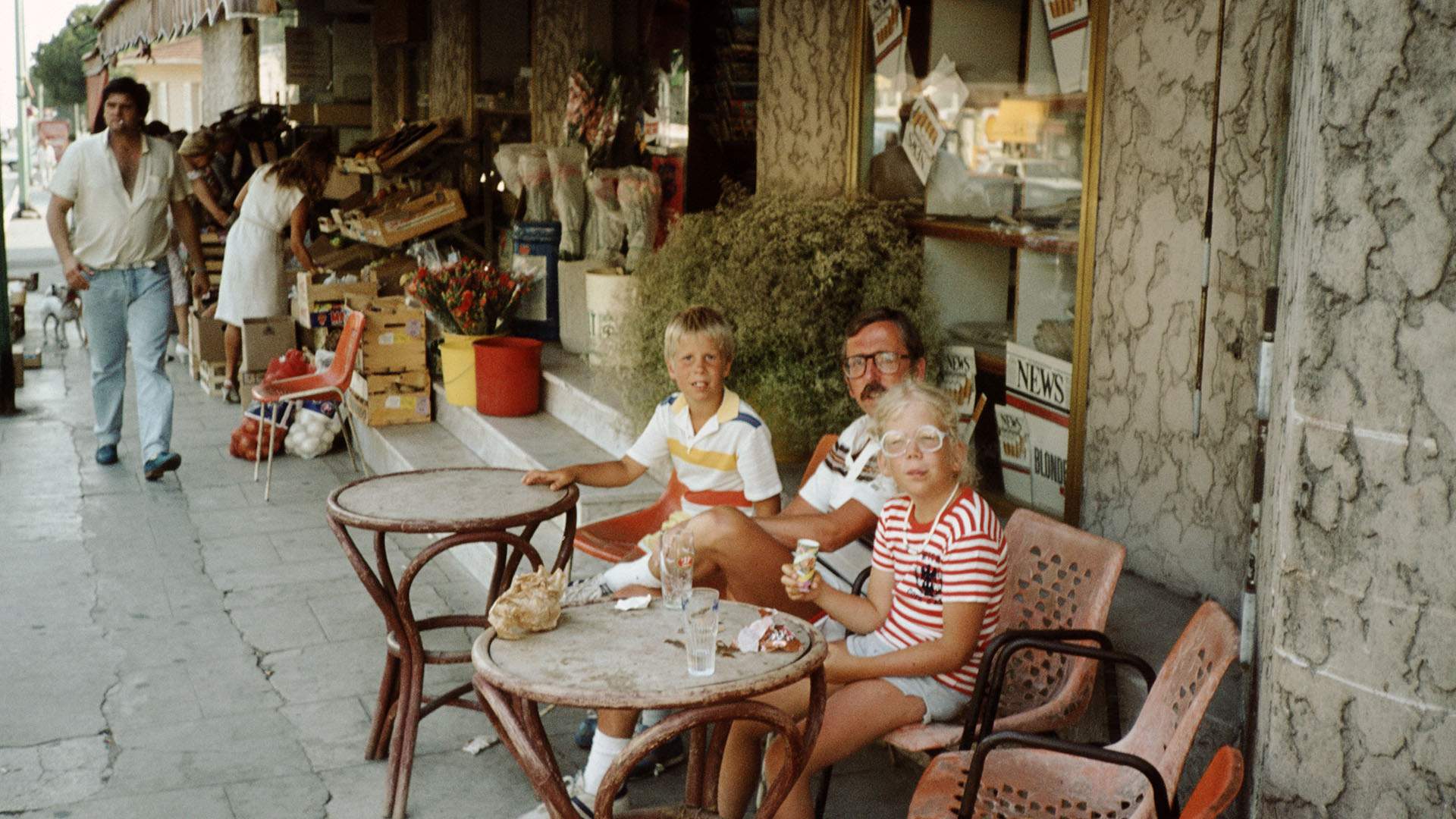
Fredrik: "Occasionally. But we wanted this to be a fun trip for him, and we wanted it to be like a reverse bucket list, if you will. Instead of doing things he never did before, let's make him — and for god's sake also let Filip, because he wanted this as well — experience the greatest moments of their lives together, and maybe that could reignite his zest for life.
It didn't really work out that way, but I think it made the movie better. And also I think that it made the journey more memorable for him."
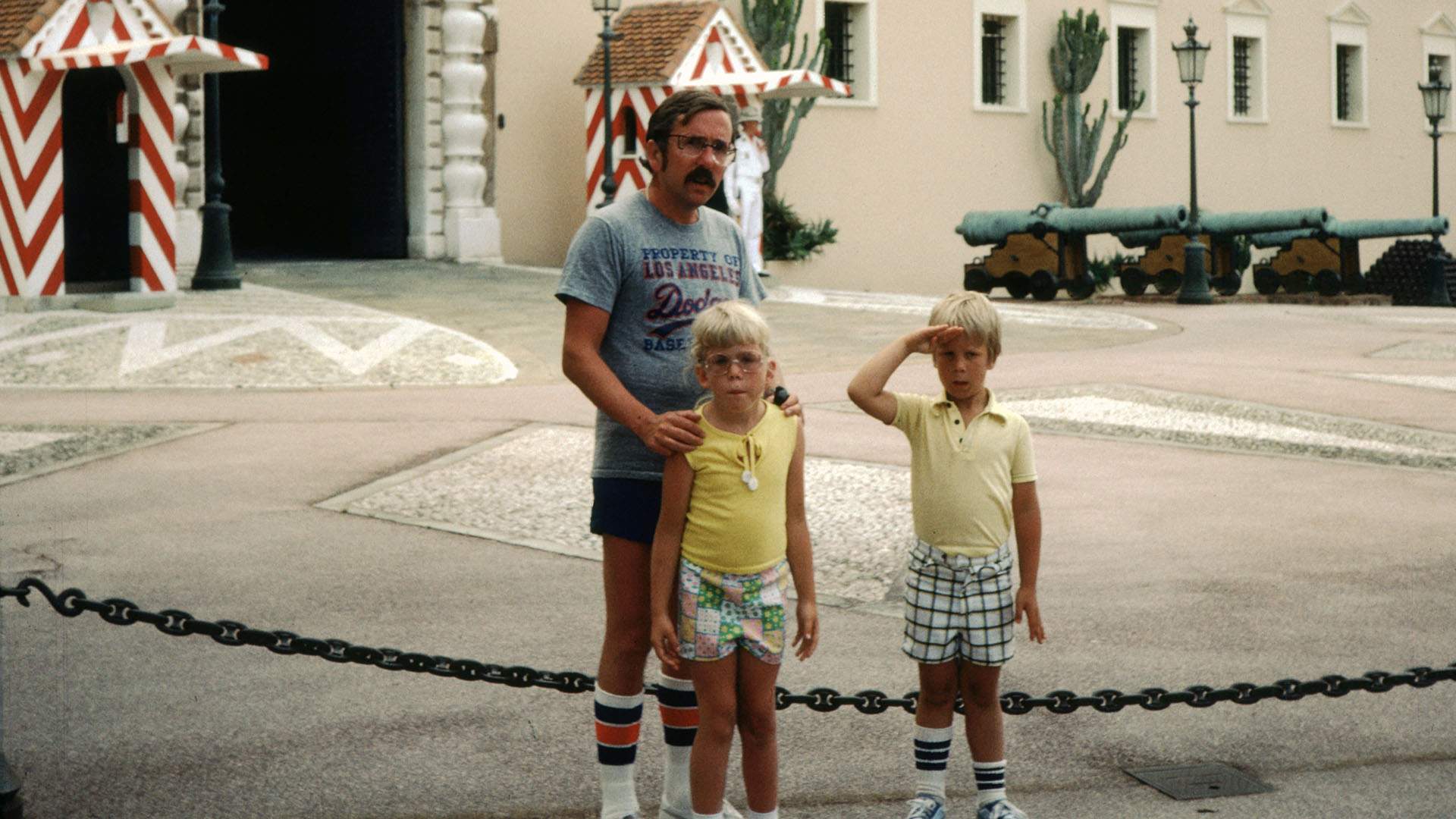
Filip: "Instead of having him experience new things, like 'oh, my dad wants to swim with dolphins' — for some reason that's always on top of a lot of people's lists. It's hanging in there for decades. It's still there — for him, I think we knew that it's better. It's like you get a ticket to your own museum. Let's do this. And I think that was the key to why it felt, for us, relevant to make this film.
And also, this is a film about a good human being — but like Fredrik said, then if it could be only like sunset sand great talks, what's good? There's an edge to this film as well that we're both proud of, and I think it's a funny film, and I think those moments we want him to re-experience are obviously not your average moments. It's like having him retell a pretty shitty story about Harry Belafonte, but he loves that story, and it was part of our summers when he tells this story about Harry Belafonte. And I think that's important for the film. Otherwise film could have become quite ... "
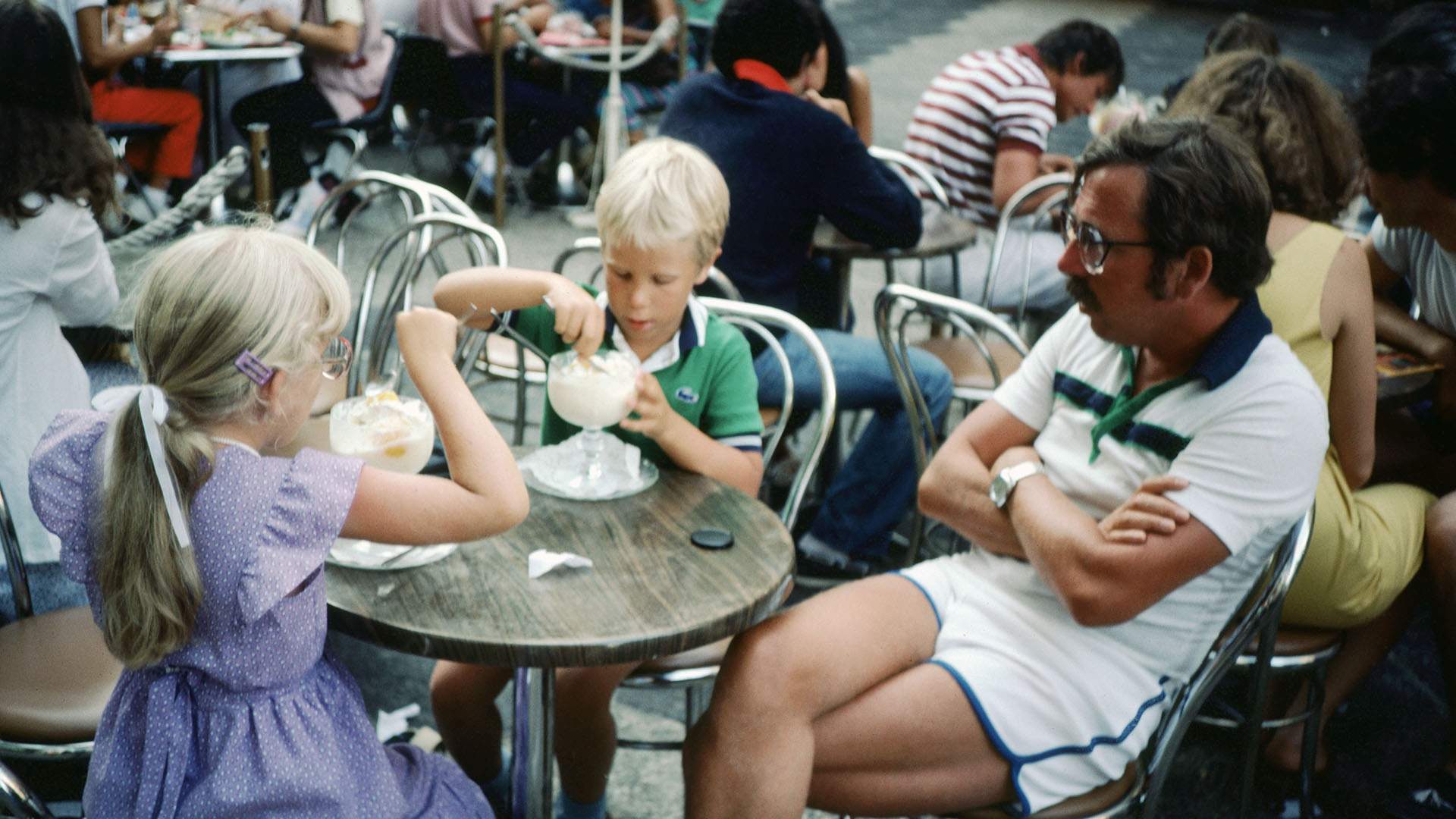
Fredrik: "Predictable, I guess."
Filip: "Yeah, I guess — and bland, like nothing. There is an oddness to it. But still a relatability. Because you probably have that story in your family when your dad is about to — and 'okay, here we go again, he's going to tell this story'. So we all have our Harry Belafonte stories in our families."

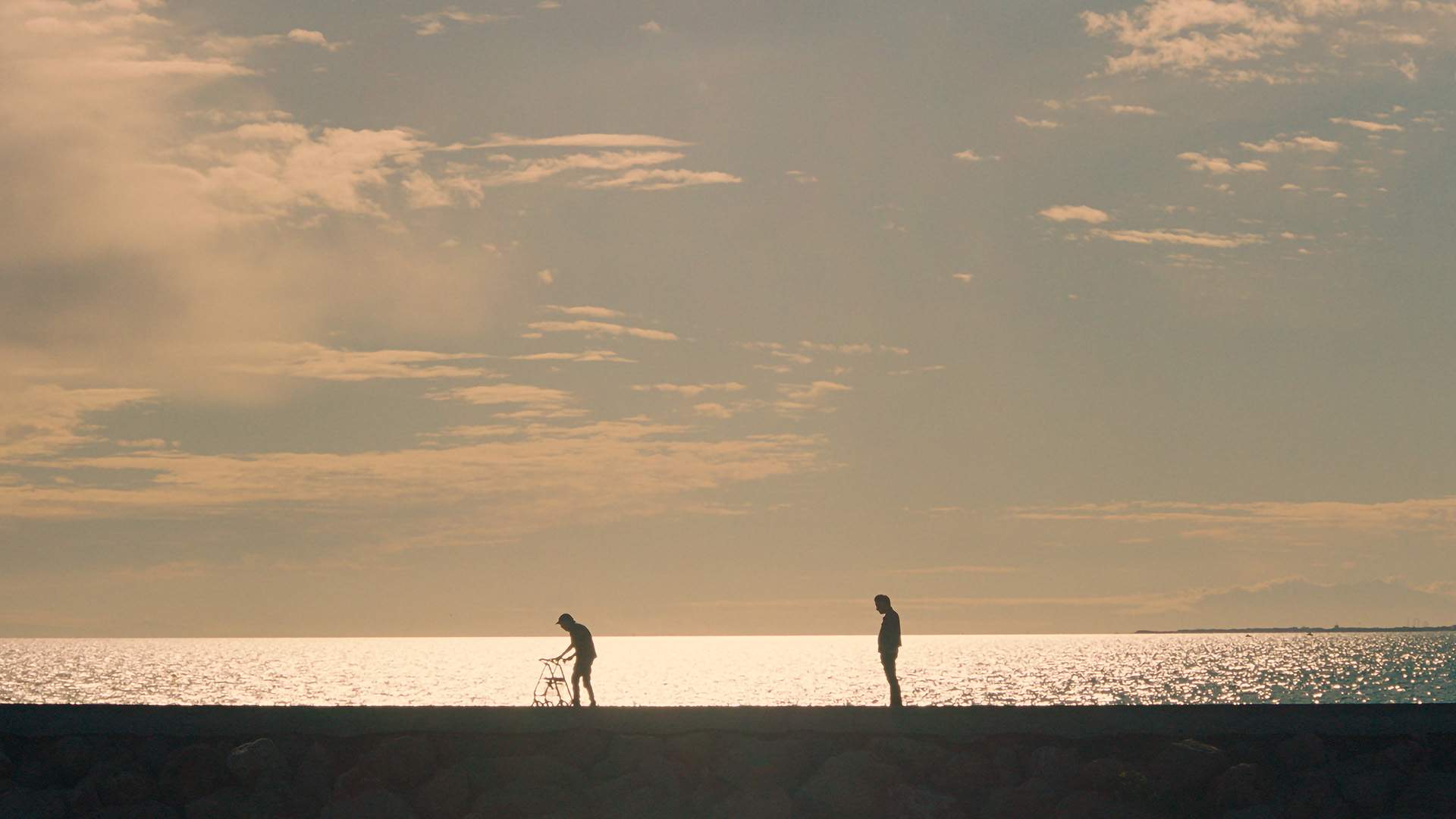
On Knowing How Crucial It Was to Share the Tough Turns Along the Film's Journey
Fredrik: "You never plan for those. When Lars claims, Filip's dad claims, that he makes the best ratatouille in Europe — and every summer, he made that once every summer, and that was the highlight of his summer, spending hours in the kitchen — so of course we wanted that to happen again.
And when you plan that as a co-traveller and also filmmakers, you have an idea, 'this is going to be a beautiful scene, one last ratatouille'. And then when you realise quickly that 'oh my god, he can't even cut through the vegetables anymore because he's too frail', your first instinct is panic, to feel like 'oh whoa, this is not what we planned'. But after a while, if you embrace the truth of the moment, which is 'okay, this is a different Lars now, and maybe this means something for this whole experience' — then, if you include that in the film, which we of course did, it becomes more true, and I think even more relatable.
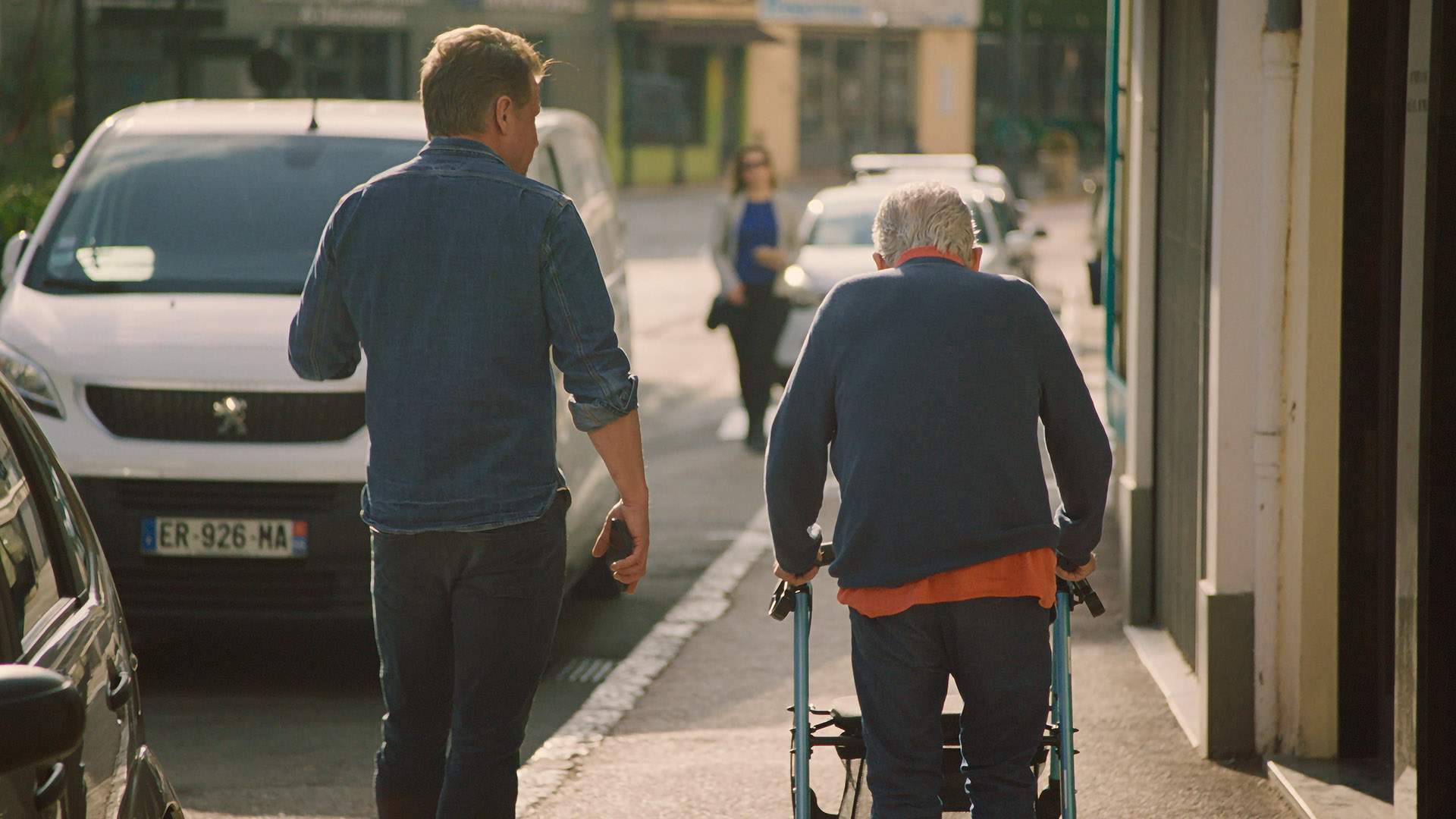
Filip: "This film plays a bit, I think, like a feature. It's a doc, but it could just as well almost been a film based on some book or a script or whatever. But what we love is, talking about whatever plot points, that scene, we didn't see it coming.
It was just like 'hey, have dinner'. But we realised that, wow, me being desperate — I can't, I don't remember this hardly — how desperate I am trying to find a sharper knife because I really want my dad to be able to cut through that eggplant. That's a very surprising plot point, but that is probably the scene where I give up, or where I come to terms with my dad's age. 'Hey, he's not going to be the same again'.
It's hard to write that. That's why I love making documentaries. It's a scene that would have been hard to come up with if you just fantasise.

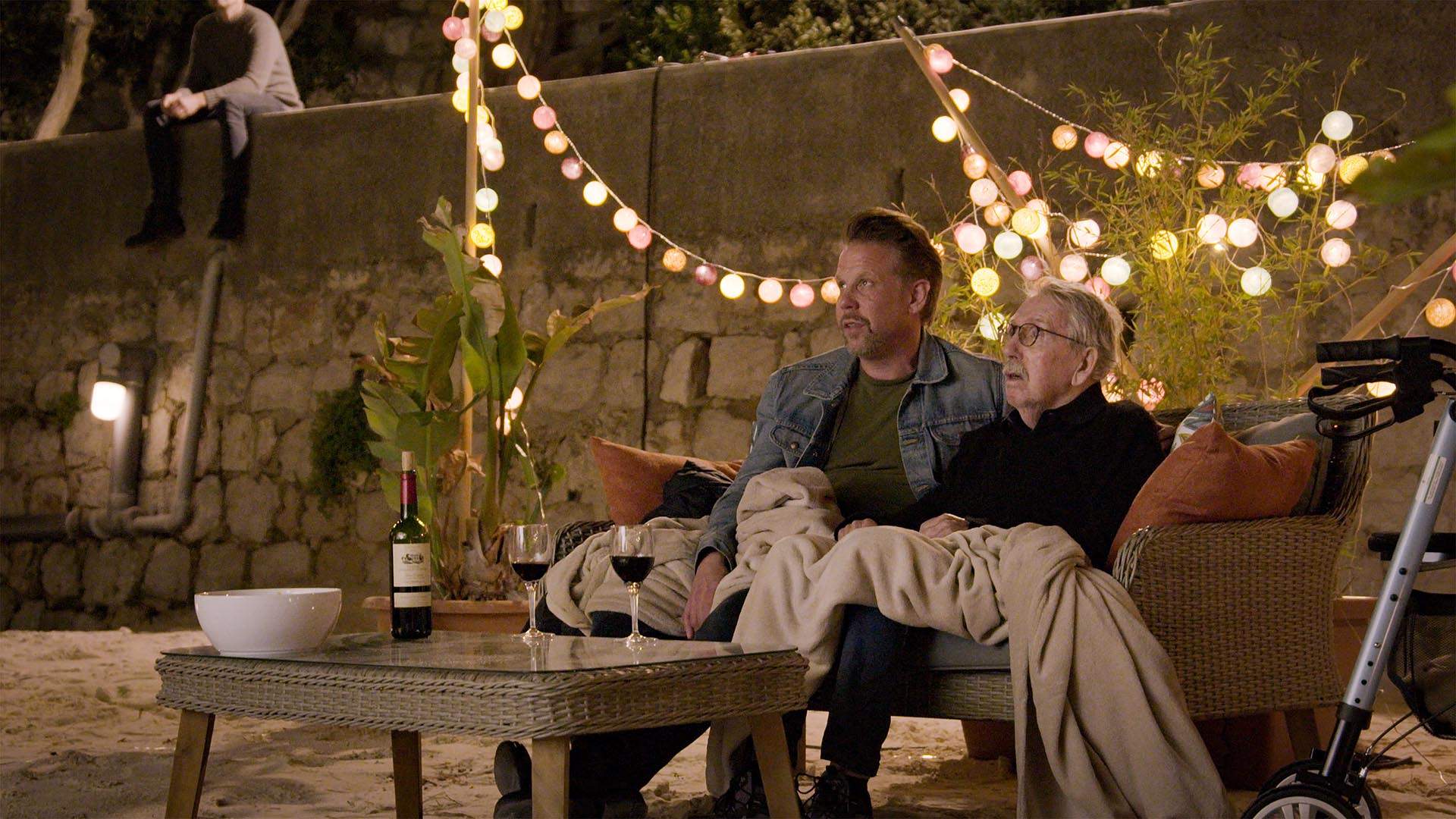
On What Filip Learned on His Trip with His Dad and Fredrik — and From Making a Documentary About It
Filip: "It sounds like it's a film about my dad, like his last journey, but I think the person that makes the biggest journey is definitely me. Because I think I really come to terms, or I finally just come to terms, with 'okay, my dad is not going to be who he once was. This is who he is now. But please, Filip, enjoy this'."
Fredrik: "Embrace it."
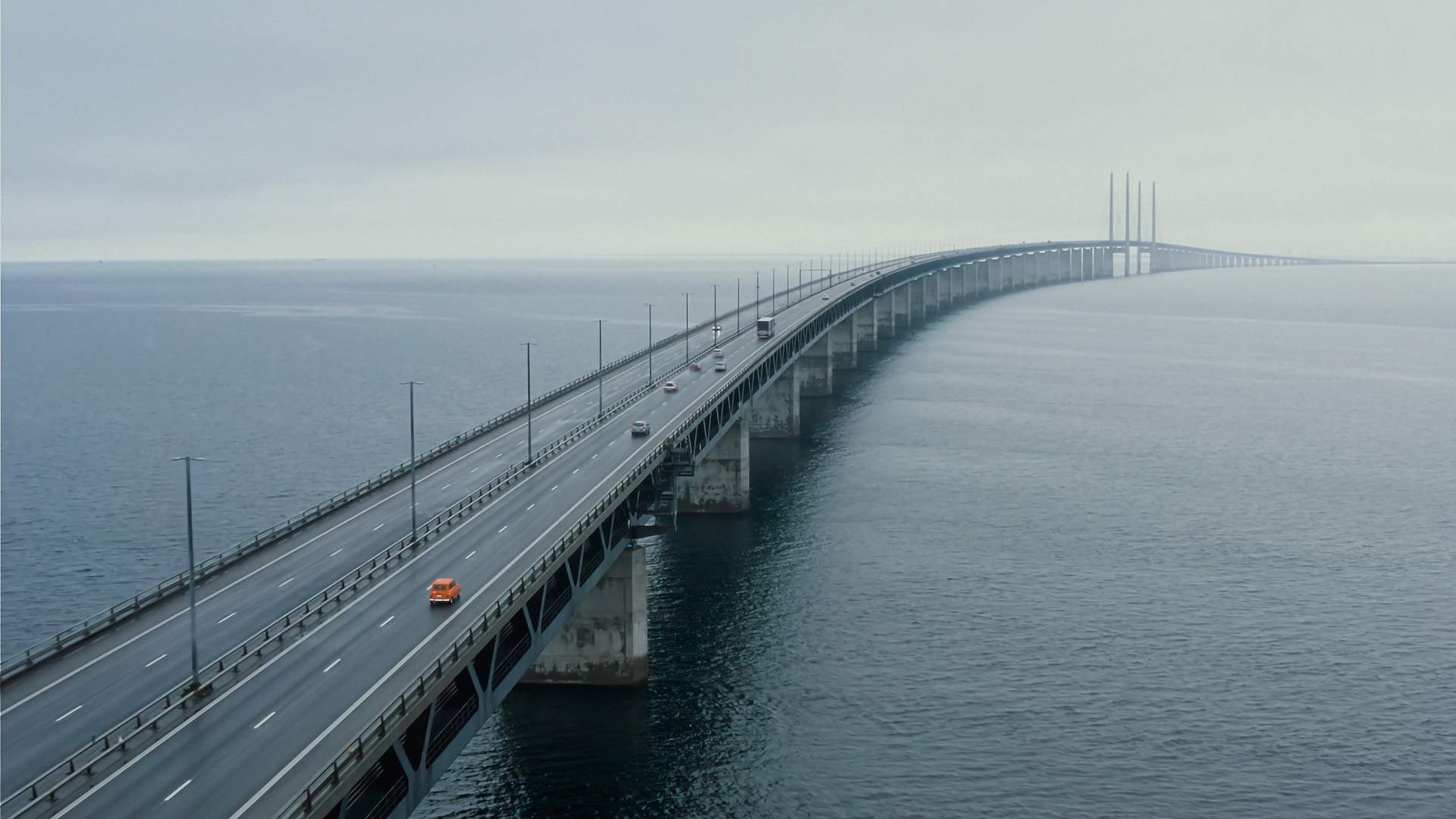
Filip: "And embrace it. This chapter in his life and in our lives together also has a silver lining.
So I think that has really, truly changed me. And I think maybe people can relate to that as well. Or if you haven't really come to terms with that, maybe people will.
And now me and my dad's relationship is better. Before this, every time I called him, I really pushed him. I told him 'come on, stop being depressed, show some fighting spirit' or whatever. Now I feel like 'okay, it's fine. Let's complain, if you want to do that. Then we can talk about other things'.
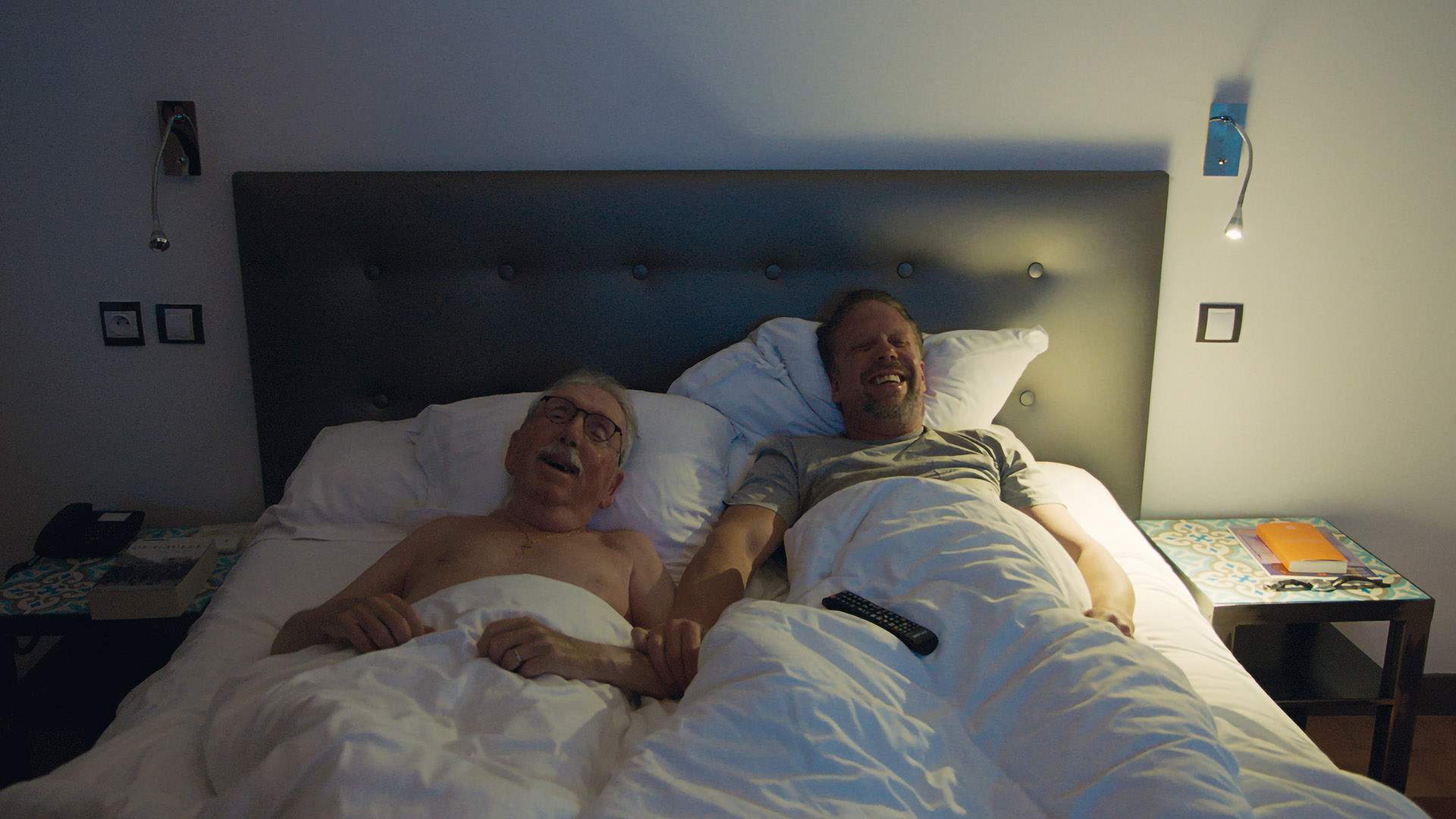
Because I think he felt the pressure before to sort of perform to make me happy, by saying 'no, I'm really trying, Filip'. So that is good.
There's a moment in the film where he says 'I hope you're not disappointed with me', and that sort of reveals a lot how, I guess, a lot of parents feel — how they feel like 'oh, I want to be someone else because my kids want me to be who I once was'.
I think that's sad. When I think about that line, I think that changed me in a way. 'Of course, I'm not disappointed in you, dad. You can be whoever you want.'"

The Last Journey opens in Australian cinemas on Thursday, February 27, 2025 and in New Zealand on Thursday, March 6, 2025.
Filip Hammar and Fredrik Wikingsson are in Australia for preview screening with Q&As on Sunday, 16 February at Sydney's Hayden Orpheum Cremorne, and on Tuesday, February 18 at Cinema Nova and The Astor Theatre in Melbourne.
